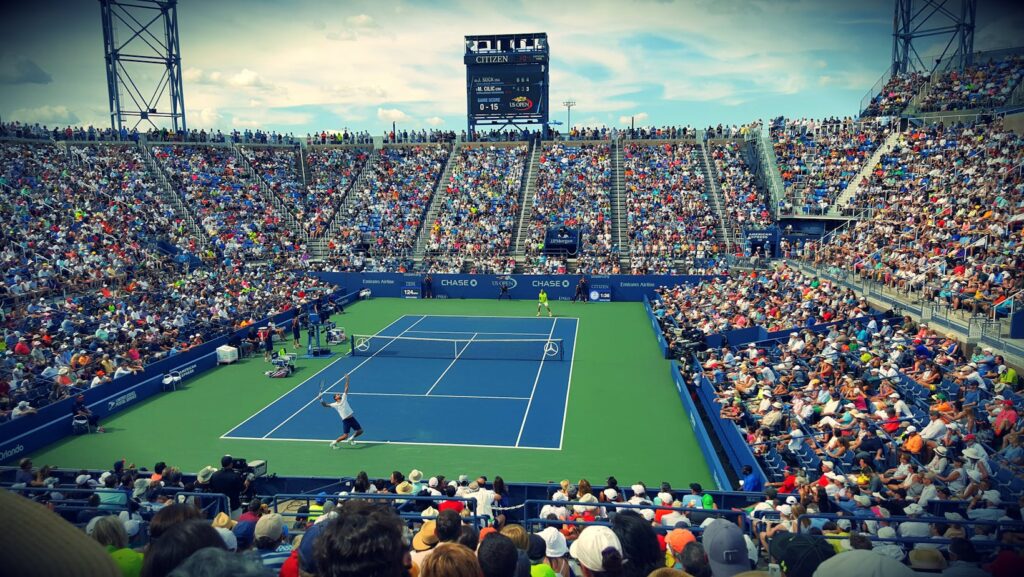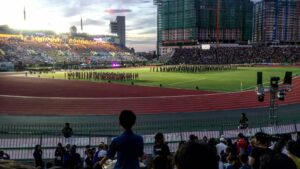
Sport has always been more than just a game—it’s a powerful tool that shapes nations. As I delve into the intricate relationship between sport and nation building, it becomes evident that the playing field extends far beyond the boundaries of a stadium. From fostering national pride to uniting diverse communities under one flag, sport has a unique ability to transcend language, culture, and politics.
Analyse The Role Played By Sport In Nation Building

Sports have served as a powerful tool for fostering national unity throughout history. Engaging in sports activities provides a shared platform for individuals from diverse backgrounds to come together and work towards a common goal. Whether it’s playing on the same team, supporting a national squad, or celebrating athletic achievements, sports create a sense of belonging and camaraderie among citizens.
By examining the historical context of sports in nation building, we can appreciate the pivotal role that sports play in fostering unity and shaping national pride. Sports have transcended mere entertainment to become a cornerstone of collective identity, uniting individuals across diverse backgrounds under the banner of national camaraderie and pride.
Key Aspects of Sports Influencing National Identity
Engaging in sports as a nation not only instills a sense of pride but also fosters a profound sense of belonging among individuals. When our national teams compete on the global stage, it’s a moment where every citizen, regardless of background, unites to support their representatives.
The success of our athletes in international competitions plays a pivotal role in shaping our national identity. When our representatives excel and bring home victories, it’s not just a win for them individually but a triumph that resonates with every citizen. These triumphs symbolize our collective strength, resilience, and talent as a nation, bolstering our pride and showcasing to the world the exceptional capabilities and spirit of our people.
Case Studies: Sports Catalyzing Change in Societies

In examining the role played by sport in nation building, I’ll delve into how sports have served as a catalyst for post-war recovery in various countries. Following periods of conflict, sports have played a pivotal role in rejuvenating national spirits and fostering a sense of unity among communities. For instance, after World War II, Germany utilized sports as a means to rebuild national pride and cohesion.
When analyzing the impact of sport on nation building, it’s essential to explore how developing nations have leveraged major sporting successes to bolster national identity. Countries with emerging economies often use sporting achievements as a platform to showcase their potential on the global stage. For instance, the success of Kenyan long-distance runners has not only put Kenya on the map as a dominant force in athletics but has also instilled a sense of national pride and unity among its citizens.
Policy and Investment in Sports for National Development
Government Support for Athletic Programs

In analyzing the role played by sport in nation building, I must emphasize the critical importance of governmental support for athletic programs. Governments play a pivotal role in promoting sports as a tool for national development. By investing in grassroots sports initiatives, training programs, and competitions, governments can nurture sporting talent from a young age. This support not only enhances the overall level of sports participation within the population but also contributes to the development of elite athletes who can represent the nation on the international stage.
Infrastructure Development and Its Ripple Effects
Infrastructural development is a cornerstone of leveraging sports for nation building. The construction of state-of-the-art sports facilities, stadiums, and training centers not only provides athletes with world-class venues to hone their skills but also serves as a catalyst for economic growth and community development. By investing in sports infrastructure, governments stimulate various sectors such as tourism, hospitality, and retail, creating job opportunities and driving local economies. Moreover, these infrastructural investments have ripple effects beyond sports, improving overall quality of life, enhancing urban landscapes, and positioning the nation as a host for international sporting events.
